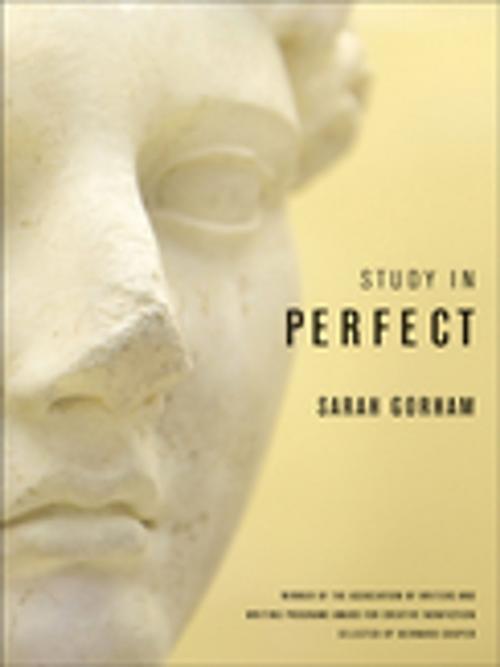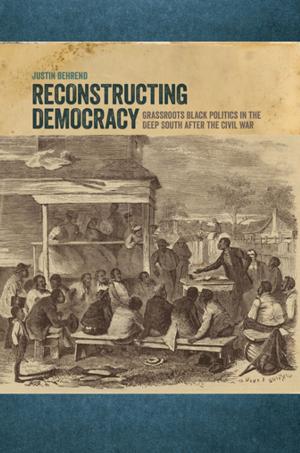| Author: | Sarah Gorham, Bernard Cooper | ISBN: | 9780820347899 |
| Publisher: | University of Georgia Press | Publication: | September 15, 2014 |
| Imprint: | University of Georgia Press | Language: | English |
| Author: | Sarah Gorham, Bernard Cooper |
| ISBN: | 9780820347899 |
| Publisher: | University of Georgia Press |
| Publication: | September 15, 2014 |
| Imprint: | University of Georgia Press |
| Language: | English |
Study in Perfect is an exploration of perfection. In “Moving Horizontal” a Victorian house loses its charm over time, especially when compared to a modernist contemporary filled with light. Family life is dense with pleasure, as in the perfect vacation described in “Marking Time in Door County,” and in “Neriage, or What Is the Secret of a Long Marriage,” where an ancient Japanese ceramic technique has much in common with shaping a close relationship. There is such a thing as a perfect cup of tea, depending on who is preparing and drinking it (“Perfect Tea”). And schmaltzy show tunes flowing from a black-lacquered piano in a Chinese restaurant can be genuinely moving (“Sentimental à la Carte”).
Naturally, Gorham must embrace imperfection. The poisonous mushrooms in “Darling Amanita” lead to a consideration of our darker impulses, like obsessive love, even murder. And there is pain: “The Shape of Fear” relates the story of a child stricken with a deadly staph infection, as it considers the function and form of fear. And alcoholism, the family disease no one wants to talk about, is poised against The Cat in the Hat, a story everyone has read and enjoyed.
Study in Perfect winds its way around and through the many permutations of this most hermetic and exalted concept and proceeds with the full consciousness that perfection’s exact definition is subjective, reliant on who is speaking, and easily unmoored by time, geography, and the vagaries of taste.
Study in Perfect is an exploration of perfection. In “Moving Horizontal” a Victorian house loses its charm over time, especially when compared to a modernist contemporary filled with light. Family life is dense with pleasure, as in the perfect vacation described in “Marking Time in Door County,” and in “Neriage, or What Is the Secret of a Long Marriage,” where an ancient Japanese ceramic technique has much in common with shaping a close relationship. There is such a thing as a perfect cup of tea, depending on who is preparing and drinking it (“Perfect Tea”). And schmaltzy show tunes flowing from a black-lacquered piano in a Chinese restaurant can be genuinely moving (“Sentimental à la Carte”).
Naturally, Gorham must embrace imperfection. The poisonous mushrooms in “Darling Amanita” lead to a consideration of our darker impulses, like obsessive love, even murder. And there is pain: “The Shape of Fear” relates the story of a child stricken with a deadly staph infection, as it considers the function and form of fear. And alcoholism, the family disease no one wants to talk about, is poised against The Cat in the Hat, a story everyone has read and enjoyed.
Study in Perfect winds its way around and through the many permutations of this most hermetic and exalted concept and proceeds with the full consciousness that perfection’s exact definition is subjective, reliant on who is speaking, and easily unmoored by time, geography, and the vagaries of taste.















